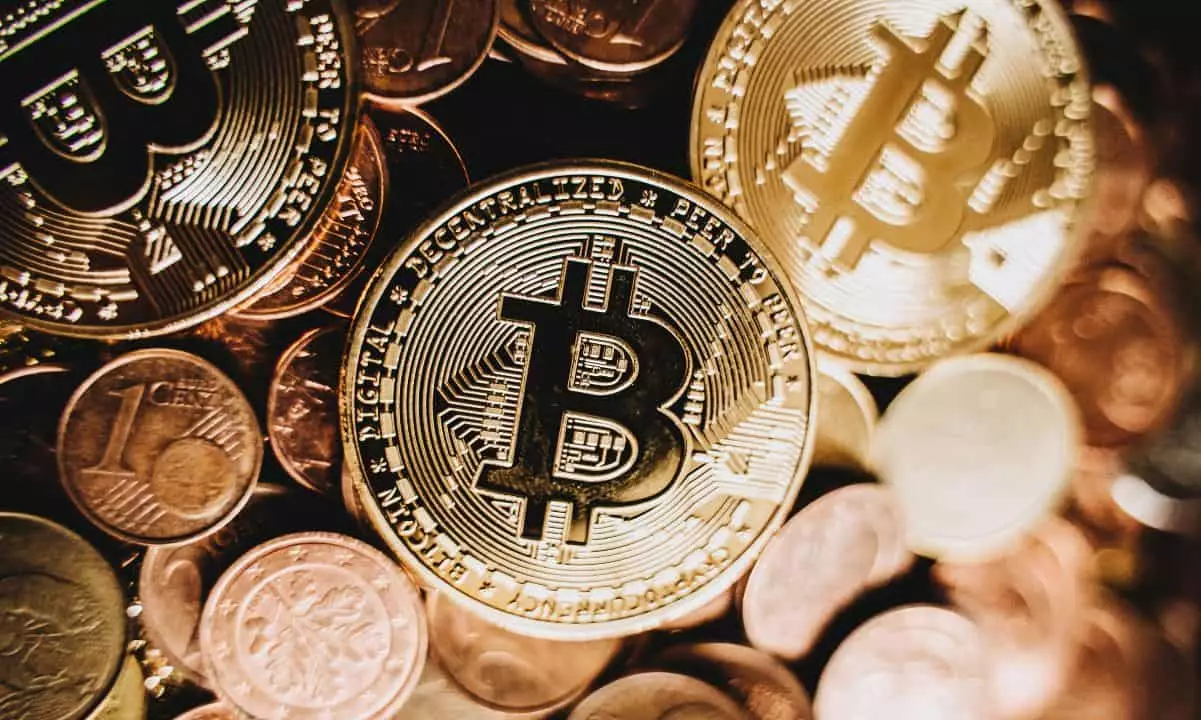In the midst of the ongoing conflict between Israel and Hamas, two assets have emerged as notable performers – bitcoin and gold. These assets have witnessed considerable price increases, captivating the attention of market observers. The geopolitical tension associated with such conflicts invariably affects financial markets, as was evident in last year’s Russo-Ukrainian conflict. However, certain assets tend to outperform others during such periods. With the Israel-Hamas war having begun three weeks ago, gold initially experienced a decline, reaching a local low of around $1,830 against the dollar. Nevertheless, the mounting political uncertainty triggered a significant surge in gold prices. It swiftly reclaimed the $1,900 mark and continued surging, surpassing the highly coveted $2,000 milestone late on Friday night. Consequently, gold has witnessed a price jump of approximately 10% since October 6.
Bitcoin’s performance during this period exhibited similarities to that of gold, although some speculate that its rise may be attributed to the potential approval of a spot BTC ETF in the United States. However, this product has yet to materialize. When the conflict erupted, bitcoin was trading around $28,000 and initially experienced a decline to below $27,000. However, it swiftly gained traction, occasionally influenced by fake news. The most substantial surge occurred on Monday and Tuesday, with the cryptocurrency skyrocketing by several thousand dollars in a matter of hours, reaching a peak not seen in 17 months at over $35,000. Although bitcoin has retraced some of that ground since then, it currently trades above $34,000, indicating a three-week gain of 23%.
The Future Performance Amidst Uncertainty
When seeking insight into the potential future performance of bitcoin and gold amid the ongoing conflict, a notable AI chatbot declined to provide a direct answer. Instead, it emphasized the influence of a wide range of factors on both assets, including political events, economic conditions, and investor sentiment, among others. The chatbot highlighted the inherent risks associated with every investment tool, stating that while gold, for instance, has historically served as a hedge against inflation and political uncertainty, past movements alone cannot forecast future performance.
As for the question of which asset serves as a better safe haven, the chatbot’s response was enlightening. It acknowledged that gold boasts a proven track record as a reliable hedge against inflation, capable of preserving its value over extended periods, even in times of high inflation. On the other hand, bitcoin is often referred to as “digital gold” and is considered by some to be a potential hedge against inflation due to its limited supply and the belief that it could function as a store of value in the digital age.
Determining the Path Ahead
Despite the chatbot’s refusal to provide a definitive prediction, it is evident that both bitcoin and gold have exhibited remarkable performance during the Israel-Hamas conflict. Their price movements showcase the impact of geopolitical tension on financial markets. As the conflict continues, investors closely monitor these assets, searching for signals to guide their decision-making.
While the historical significance of gold as a hedge against inflation cannot be ignored, bitcoin’s emergence as a digital alternative has captivated the attention of market participants. The limited supply of bitcoins and its potential function as a store of value in the digital era contribute to its appeal as a safe haven asset. However, the volatility and unpredictability inherent in the cryptocurrency world cannot be overlooked.
As the conflict unfolds, it is essential for investors to remain cautious and thoroughly assess their risk appetite before making any investment decisions. Both bitcoin and gold present opportunities but also carry inherent risks. Diversification and a comprehensive understanding of the characteristics of each asset are key to navigating this complex landscape.
Bitcoin and gold have experienced notable price surges during the ongoing conflict between Israel and Hamas. While their performance showcases the influence of geopolitical tension on financial markets, it remains challenging to predict their future movements. Gold’s historical track record as a hedge against inflation provides reassurance, but bitcoin’s potential as a digital safe haven cannot be dismissed. As investors navigate these uncertain times, careful evaluation and diversification are crucial for making informed decisions.

